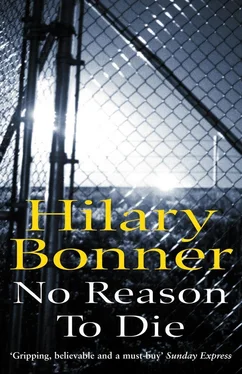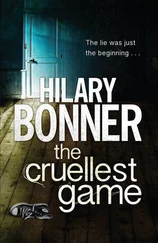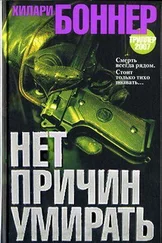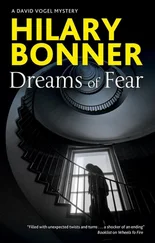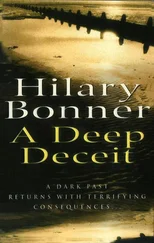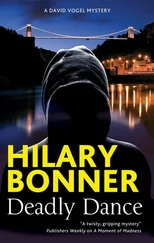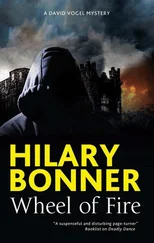The doorbell ran again. Kelly took a gulp of whisky and swallowed. The first two pills disappeared down his throat. He was about to take two more when she called through the letterbox.
‘John, John, are you there? We’re worried about you. I’ve phoned and phoned. Answer the door, John.’
Damn, thought Kelly. It was Jennifer. The one person he could never easily ignore. He still didn’t intend to answer the door, though. But he did put down the whisky glass and empty the pills from his hand onto the table.
Jennifer continued to call through the letterbox.
‘John, I told you, I’ve got some news. Good news. Paula’s pregnant again, John. And she’s going to have a girl. She’s had the scan and she’s going to have a girl. Mum’s second grandchild, and so soon after her death. It’s like it was meant, John. Isn’t it wonderful?’
Kelly put his head in his hands. It was aching, of course. But then, it had been aching for three days, ever since his only son had tried to kill him.
‘John, John.’ The voice was more plaintive now, as if Jennifer were giving up on him being there or at least on him answering the door. He heard the letterbox snap shut. He imagined her turning and trudging off down the little garden path, disappointed at not having been able to share her news, and probably still worried about him.
Suddenly Kelly found himself on his feet and hurrying out of the living room, almost unaware of what he was doing, acting on some kind of autopilot. He flung open the front door just as she was stepping out through the gate and onto the pavement.
‘Jennifer,’ he said.
She turned smiling, but the smile faded when she saw his face.
‘Good God, Kelly, what on earth has happened to you?’
‘Uh, I had to stop suddenly in the car and I bashed my head on the windscreen,’ he lied fluently. ‘That bloody Volvo, I hate it.’
She smiled again.
‘I’m sorry,’ he continued. ‘I was lying on the bed. I don’t feel all that hot.’
‘I’m not surprised. Oh dear, John, are you sure you’re all right here on your own? Have you seen a doctor?’
‘Yes, I have, and I’m fine. Just tired and a bit sore, that’s all.’
She nodded.
‘John, did you hear what I said?’
‘About Paula? Yes. That’s really great news, Jennifer.’
He found that he meant it too. It was great news.
‘They’re going to call her Moira, after Mum. She’d have liked that, wouldn’t she?’
‘Yes, she would.’ Kelly felt his eyes moisten.
‘Do you want me to come in and make you something to eat or anything?’
‘No. No, thank you. I just need to sleep, I think.’
‘Paula and Ben are coming down at the weekend. Will you come over for Sunday lunch? To celebrate their news.’
Kelly hesitated.
‘We’d really like you to be with us.’
‘Yes,’ he said. ‘Of course. I’d love to.’
‘Great.’ Jennifer left with another smile and a wave.
Kelly closed the front door and went back into the living room. He scooped all the pills back into the wicker basket, picked it up along with the bottle of malt whisky and the still nearly full glass, and made his way upstairs to the bathroom.
There, he poured the contents of both bottle and glass down the sink, and flushed the pills — all except the packet of Nurofen and the remaining few blockbuster painkillers, which he still had considerable need for — down the loo. Then he closed the lavatory lid, sat down on it, and proceeded to cry his eyes out.
Six months later, Karen was sitting at her desk in Torquay police station, disconsolately leafing through some of the numerous files and reports which had by then been compiled on the Hangridge affair. She feared she had little choice except to put it all behind her now, but the case remained one of the most frustrating she had ever been involved with.
The police investigation she had fought so hard to put in place had so far been spectacularly unsuccessful, and although it was officially still ongoing, in fact most lines of inquiry had now been completed and there seemed scant chance of taking matters much further.
Karen had done her best to make sure that every possibility had been fully explored, every piece of evidence meticulously followed up and recorded. However, her highly unsatisfactory confrontation with Parker-Brown, and the contents of his statement to the National Crime Squad, consisting almost entirely of denial and evasion, had rather set the trend for the entire investigation. It had led nowhere. And the involvement of the NCS, throughout, had compromised her autonomy as senior investigating officer, as she had known that it would, and indeed suspected had been the intention of those in authority, both in the military and the police, who had involved the NCS in the first place.
No evidence at all had been found to indicate that Trevor Parsons’ death was anything other than suicide, and Karen had been forced to accept that the death of the unfortunate young squaddie really might be no more than a coincidence.
The body of Jocelyn Slade had been exhumed and an independent ballistics expert employed to study the gunshot wounds she had suffered. His findings, however, had not been conclusive. He reported that in the case of at least two of the five wounds Private Slade had suffered, the bullets had entered from an angle suggesting that the SA80, which had killed her, had been held considerably higher than he would have expected in a self-inflicted shooting. However, all five bullets had been fired from a distance which was consistent with a suicide attempt. And similarly, the ballistics expert found that while it was perhaps surprising for as many as five bullets — even fired from a fast-action automatic weapon — to have found their mark in a suicide bid, it was possible.
No evidence had been found to prove that the deaths of Craig Foster and James Gates were anything other than tragic accidents, although there were some particularly suspicious circumstances surrounding Foster’s death. The logbook of his SA80, which would have contained the rifle’s entire history, had inexplicably disappeared soon after Foster was killed, and the clothes Foster was wearing on the fatal exercise had since been destroyed.
In the case of Gates, the peculiar manner of his death remained questionable, but the level of alcohol in his blood system, almost four times the legal driving limit, countered that. Indeed, because of his extreme drunkenness, the German authorities argued that there was no cause to re-open the investigation into his death.
The death of Robert Morgan, knifed in a London street, had definitely been murder, of course, but no evidence was found to suggest that the military might be involved, or indeed to link his killing with the other Hangridge deaths in any way.
The inquest on Alan Connelly, finally held three months after the launching of the formal police investigation, had been the worst moment of all for Karen. Kelly was called as a witness, and freed from the restrictions of libel laws by courtroom privilege, he could have made any allegations he wished against Gerrard Parker-Brown. Virtually the entire British press, alert by then to the possibility of a major scandal involving the military, had been represented at Torquay Coroner’s Court. And if Kelly had voiced his suspicions about the colonel, and explained how he believed him to have been one of the two men he’d seen escorting Connelly out of that Dartmoor pub, just minutes before the young man had been killed, media speculation would have run riot and could have led to all kinds of further developments.
But Kelly chose not to do so.
When asked if he recognised either of the two men who had come looking for Connelly, he’d merely replied that both men had been wearing woolly hats pulled down over their foreheads and had had their coat collars turned up, and that it would not be fair to make any kind of guess.
Читать дальше
